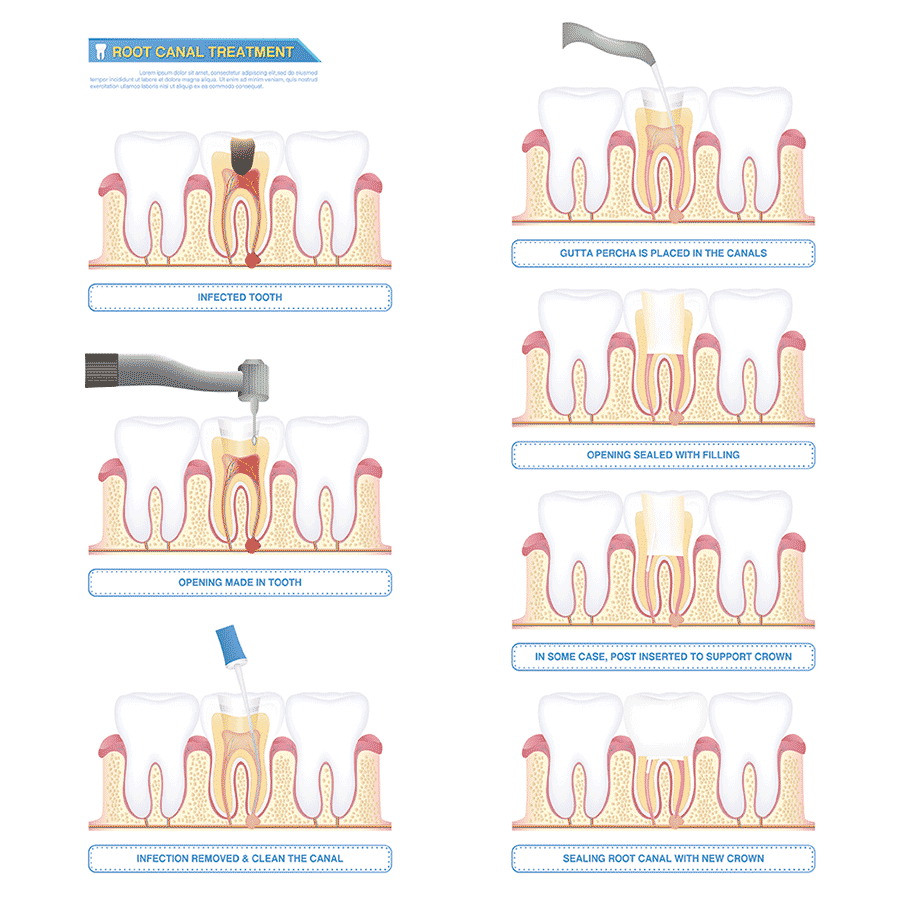ROOT CANAL TREATMENT
Tandartsenpraktijk Arnout & Hobbelink in Amstelveen Randwijck.Vlakbij Amsterdam Buitenveldert, Amstelveen Elsrijk,Amsterdam Oud-Zuid en de Zuidas.
Many people still shudder at the thought of “root canal treatment”. This most likely dates back to a period when anaesthesia was less effective than it is today.
Thanks to modern numbing techniques, a root canal procedure can be performed pain-free. At Arnout & Hobbelink Dentists we are committed to making the procedure as comfortable as possible for you.
If you feel you have an infection it is important to contact a dentist promptly as such an infection can spread throughout the jaw, possibly resulting in loose teeth or even the loss of a tooth.
What is a root canal treatment?
Every tooth has one or more (root) canals containing a nerve. The nerve can become inflamed or infected due to a cavity, a fracture, a leaking filling or from trauma such as a knock to the tooth.
One of the first signs of an inflamed nerve is an increased sensitivity to hot and cold. Sometimes the nerve will heal itself. However, if the pain is so intense that pain medication barely helps, you have trouble sleeping or the pain flares up suddenly, it is unlikely that the infection will resolve itself. Root canal treatment will then be required to remove the inflamed nerve after which the surrounding canals are cleaned, filled and sealed.
How can I recognise the symptoms of an inflamed root canal?
Possible symptoms are:
Why do I need root canal treatment?
Infected tissue in your root canal will not heal itself and may cause infection to spread to the jaw bone. This can result in teeth becoming loose or even falling out.
It is important to have the infected tissue removed by undergoing root canal treatment. The infection can cause problems elsewhere in your body such as with blood vessels, heart valves or prosthetics.
Don’t ignore infections such as these, even if you are not experiencing pain or other symptoms.
What can I expect from root canal treatment at Arnout & Hobbelink Dentists?
What is the correct way to clean my teeth?
It is best to brush your teeth for two minutes, twice a day. Once in the morning and once in the evening, just before going to bed. This removes bacteria that would otherwise damage your teeth during the night. Brushing your teeth removes plaque build-up, so be sure to brush every tooth surface that you can reach.
To remove plaque from between teeth (which generally can’t be reached with a toothbrush), use dental floss, toothpicks or interdental brushes. Which of those methods works best for you will depend on the space between your teeth. Arnout & Hobbelink Dentists can give you personalised advice on which methods are most suitable for you.






